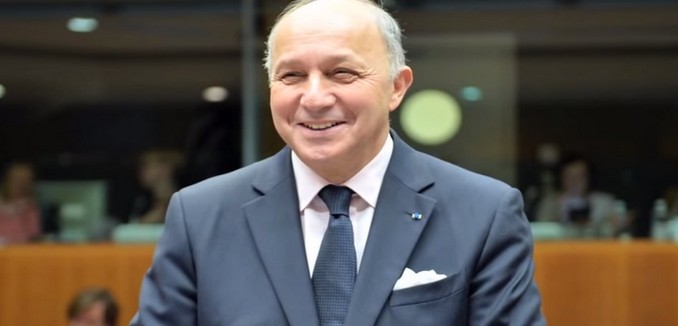The P5+1 nuclear talks with Iran adjourned for the weekend amid a growing rift between France and the United States over French insistence that no further concessions be made until Iran gives “a full explanation of evidence” of its past military nuclear research, The Guardian reported today.
The sharpest split is between the US, which had proposed a scheme for a phased lifting of UN sanctions in return for concrete Iranian actions to limit its nuclear programme, and France, which wants to offer only a symbolic easing of the punitive measures imposed over the past decade.
Diplomats say the French foreign minister, Laurent Fabius, telephoned the French delegation in Lausanne to ensure it did not make further concessions, and to insist that the bulk of UN sanctions could only be lifted if Iran gave a full explanation of evidence suggesting it may have done development work on nuclear warhead design in the past.
Advertisement“We have been negotiating with Iran for 12 [years]. We shouldn’t be rushed into an agreement which will have to be comprehensive,” the French ambassador to Washington, Gerard Araud, tweeted during the talks. “For France, any agreement to be acceptable will have to give concrete guarantees on all issues. We won’t bypass any of them.”
Iran considers France’s insistence that it divulge its past nuclear work to be unacceptable.
Iranians have already made their choice: Engage with dignity. It's high time for the US and its allies to chose: pressure or agreement.
— Javad Zarif (@JZarif) March 20, 2015
Earlier this week, French Foreign Minister Laurent Fabius said, “We want an agreement, but only if the agreement is very solid. There has been progress but important points remain which are not resolved.”
Recently, The New York Times outlined twelve questions about Iran’s past nuclear research that Iran still has not adequately answered.
Sanctions against Iran were passed by the United Nations Security Council for Iran’s violations of its obligations under the Nuclear Nonproliferation Treaty, including its failure to give a full accounting of its entire nuclear program to the International Atomic Energy Agency (IAEA).
Similarly, the Joint Plan of Action (.pdf) signed in November 2013 between Iran and the P5+1 nations required Iran to “work with the IAEA to facilitate resolution of past and present issues of concern.” Yet earlier this month, the IAEA issued a report stating that it “is not in a position to provide credible assurance about the absence of undeclared nuclear material and activities in Iran, and therefore to conclude that all nuclear material in Iran is in peaceful activities,” underscoring Iran’s lack of cooperation in fulfilling even its recently agreed-upon commitments.
[Photo: WochitGeneralNews / YouTube ]




